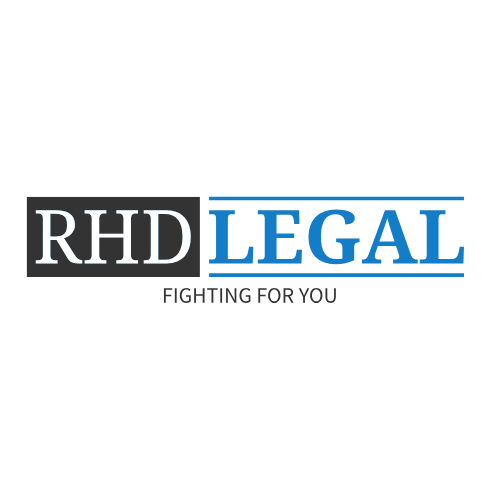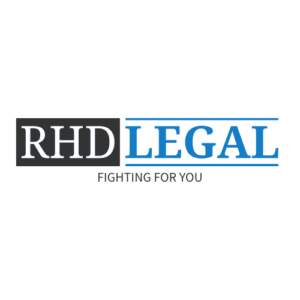What Are ERISA Liens and How Do They Affect Personal Injury Settlements in North Carolina?
Navigating the aftermath of a personal injury claim can be a daunting process. The legal, medical, and financial hurdles often feel endless. Among these challenges, an ERISA lien can further complicate matters, especially if you are unaware of how such liens function or their potential impact on your settlement. ERISA liens, enforced under the Employee Retirement Income Security Act (ERISA), allow employer-sponsored health plans to seek reimbursement for medical expenses they covered on your behalf.
These liens operate under federal law and often override state-level protections, leaving accident victims with reduced settlements. Understanding the intricacies of ERISA liens and taking proactive steps to address them is crucial in preserving your financial recovery. At RHD Legal, we are here to help you navigate this complex terrain, ensuring that your rights are protected and your settlement maximized.
Understanding ERISA and Its Role in Personal Injury Cases
The Employee Retirement Income Security Act of 1974 (ERISA) was designed to set minimum standards for private employer-sponsored health and retirement plans. While ERISA provides valuable protections for employees, such as ensuring fair treatment and transparency, it also grants significant rights to self-funded health insurance plans. These plans are often backed by employers rather than traditional insurance companies and are subject to federal oversight.
ERISA’s jurisdiction is a double-edged sword for those seeking compensation for a personal injury. Because ERISA plans are federally regulated, they are exempt from many state laws that limit or restrict the ability of health insurance plans to recoup medical expenses. In states like North Carolina, which has anti-subrogation laws that generally prevent health insurers from seeking reimbursement from personal injury settlements, ERISA plans are still allowed to assert a lien against your settlement.
This exemption can be a rude awakening for injury victims who may have assumed their settlement would cover the full range of damages, including pain and suffering, lost wages, and medical expenses. Instead, a substantial portion of their recovery may be diverted to reimburse the ERISA plan for medical expenses paid on their behalf.
ERISA Liens vs. State-Regulated Insurance Plans
One of the key distinctions between ERISA-governed plans and state-regulated insurance plans lies in their reimbursement rights. In North Carolina, state-regulated insurance plans are subject to various consumer protections. For example, these plans may be prohibited from seeking full reimbursement if it would leave the injured party undercompensated. This means that health insurance companies in North Carolina are often prevented from claiming a portion of your settlement if doing so would leave you with less than you need to cover other expenses, such as lost wages, ongoing medical care, or pain and suffering.
In contrast, ERISA plans often include aggressive subrogation clauses in their contracts. These clauses allow the plan to recover the full amount of medical expenses they paid, regardless of whether your settlement is sufficient to cover other damages, such as pain and suffering or diminished earning capacity.
For instance, imagine your ERISA plan paid $50,000 in medical bills and you receive a $75,000 settlement. The ERISA plan may assert a lien for the entire $50,000, regardless of how much your settlement was intended to compensate for other losses. After attorney fees and other costs, you could be left with far less than you anticipated—possibly even less than your actual out-of-pocket expenses for things like lost wages or ongoing treatment.
The Mechanics of ERISA Liens
ERISA liens typically arise when an employer-sponsored health plan pays for medical treatment related to an accident. These plans often include language in their contracts that grants them the right to recover their expenses from any third-party settlement or judgment, which includes personal injury settlements.
Once the health plan learns about your personal injury claim, they may file a lien against your settlement. This lien acts as a legal claim, ensuring that the plan is reimbursed before you receive the remaining funds. The lien will typically be filed with the court or communicated directly to the parties involved in the settlement negotiation. In many cases, the lienholder will require detailed documentation of your settlement, including how the funds are allocated.
Because ERISA liens take precedence over many other claims, they can significantly impact how much compensation remains for your non-medical damages. For this reason, it’s essential to address these liens proactively and strategically.
Negotiating ERISA Liens: Protecting Your Settlement
One of the most critical aspects of handling an ERISA lien is negotiation. While the plan’s terms may give it a legal right to reimbursement, that doesn’t mean the amount claimed is set in stone. Experienced attorneys can often negotiate a reduction in the lien, leaving you with a larger portion of your settlement.
Negotiation strategies may include:
- Challenging the lien’s validity: Not all ERISA plans are self-funded, and some may not meet the strict criteria required to enforce their claims under federal law. If your plan is not self-funded or lacks the necessary language to enforce reimbursement rights, you may be able to argue that the lien is not valid.
- Analyzing settlement allocation: If parts of your settlement are designated for non-medical damages, such as pain and suffering or emotional distress, these funds may not be subject to the lien. A skilled attorney can help ensure that your settlement allocation is done in a way that minimizes the impact of the ERISA lien.
- Arguing equitable considerations: Courts sometimes consider fairness when determining lien amounts, especially if full reimbursement would leave you inadequately compensated. If the lien is disproportionately high, an attorney may be able to argue for a reduction based on the principle of equity, ensuring you are not left financially burdened after your settlement.
Timing is also essential. Negotiating the lien before your settlement is finalized can prevent delays and ensure a smoother resolution process.
The Complexity of Multiple Liens
In some personal injury cases, you may face claims from multiple lienholders, such as Medicare, Medicaid, or private health insurers. When ERISA liens intersect with other claims, the process becomes even more complicated. Federal law often prioritizes statutory liens, like those from Medicare, over contractual liens, such as ERISA claims.
Determining the order of payment and resolving disputes between lienholders requires in-depth legal knowledge and careful coordination. For example, if both Medicare and an ERISA plan claim a portion of your settlement, understanding which lienholder takes priority can make a significant difference in how much you can retain from your settlement. These complexities require a skilled personal injury attorney who is well-versed in handling such matters.
At RHD Legal, we are experienced in managing these complexities, ensuring that all claims are addressed fairly and efficiently. We know how to balance the interests of various lienholders to ensure that you are treated justly while maximizing your compensation.
Identifying an ERISA Plan
Understanding whether your health insurance plan falls under ERISA is crucial, as it can significantly impact how liens are handled in your personal injury case. ERISA plans are typically employer-sponsored and federally regulated, but not all employer-provided insurance is subject to ERISA. The key lies in determining how your plan is funded.
If your employer pays medical claims directly rather than through an external insurance policy, your plan is considered self-funded and likely governed by ERISA. These plans often include specific provisions for reimbursement, such as subrogation clauses, which allow the plan to recover costs from your personal injury settlement.
How ERISA Liens Can Impact Your Claim
Imagine you are injured in a car accident, and your medical bills total $50,000. Your employer-sponsored health insurance, an ERISA plan, covers these costs upfront. Later, you settle with the at-fault driver’s insurance company for $100,000. However, because the ERISA plan has a legal right to reimbursement for the medical expenses it paid, it places a lien against your settlement for the full $50,000.
This reimbursement can significantly reduce the amount you take home. If you are unaware of the lien or fail to negotiate its terms, you could end up losing half of your settlement to satisfy the ERISA plan’s claim. Unlike other types of liens, ERISA liens often do not have to follow state laws that might otherwise limit their reimbursement rights.
In some cases, the insurer might demand reimbursement even before you account for attorney fees, other liens, or expenses, leaving you with a smaller recovery than anticipated. An experienced personal injury attorney can often negotiate with the ERISA plan to reduce the lien amount, ensuring that you retain a larger portion of your compensation.
Confirming If Your Plan Is Governed by ERISA
To confirm whether your plan is governed by ERISA and self-funded, you can:
- Review your policy documents: Check for terms like “subrogation” or “reimbursement,” which indicate the plan’s right to seek repayment for medical expenses it has covered.
- Examine the IRS Form 5500: Employers with self-funded ERISA plans must file this form annually, providing details about plan sponsorship and administration. Reviewing this document can clarify whether your employer is directly funding the plan.
- Consult a personal injury attorney: Determining the nature of your insurance plan isn’t always straightforward. An experienced attorney can analyze your policy and other relevant documents to confirm if it is ERISA-based and self-funded.
Steps You Can Take to Protect Your Financial Recovery
If you’re dealing with an ERISA lien, taking the following steps can help safeguard your settlement:
- Identify your insurance plan: Determine whether your health insurance plan is governed by ERISA and whether it is self-funded or fully insured.
- Review plan documents: Examine the subrogation and reimbursement provisions in your policy to understand your plan’s rights.
- Notify your attorney: Inform your legal team about any potential liens early in the process so they can address them proactively.
- Document your damages: Keep detailed records of all expenses and losses related to your injury to ensure a fair settlement.
- Negotiate the lien: Work with your attorney to negotiate a reduced lien amount, taking into consideration your non-medical damages.
Conclusion
ERISA liens are a complex and often unexpected challenge for injury victims seeking full compensation. Understanding how these liens operate, the federal regulations that govern them, and the negotiation strategies available to minimize their impact is crucial for securing a fair recovery. At RHD Legal, we have the experience and expertise to help you navigate ERISA liens and other related issues, ensuring that you maximize your personal injury settlement.
If you’re facing an ERISA lien or dealing with any aspect of a personal injury claim, reach out to RHD Legal today. Let us protect your rights and help you achieve the best possible outcome for your case.
How RHD Legal Can Help
At RHD Legal, our North Carolina Car Accident Attorneys have years of experience helping clients understand and manage ERISA liens. Our team will carefully review your case, negotiate with lienholders, and ensure that your settlement is protected as much as possible. We’ll work tirelessly to minimize the impact of ERISA liens on your financial recovery.
Why Choose RHD Legal?
ERISA liens can be complex and difficult to navigate. That’s why you need an experienced car accident attorney who understands the ins and outs of these claims. At RHD Legal, we offer personalized service and aggressive advocacy for our clients throughout North Carolina. If you’re facing an ERISA lien or have questions about your personal injury case, contact us today at 919-246-4001 or use our online contact form to schedule a free consultation. Let us handle the complexities of your case so you can focus on your recovery.



